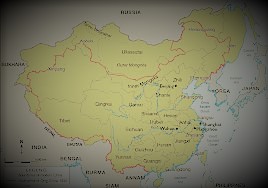A new GLO Discussion Paper provides evidence that the campaign decreased the economic attractiveness of bureaucratic jobs.
GLO Discussion Paper No. 1159, 2022
The Anti-Corruption Campaign and the Inter-Generational Transmission of Working in Bureaucracy: Evidence from China – Download PDF
by Chen, Shuai & Ge, Erqi
GLO Fellow Shuai Chen

Author Abstract: There is a clear and persistent inequality of bureaucratic employment between individuals with a bureaucrat parent and those without. Using the recent anti-corruption campaign in China as a quasi-experiment, we investigate how endeavors for counter-corruption affect inequality and potential cronyism in bureaucratic employment through inter-generational transmission. First, we conduct a difference-in-differences analysis to compare changes in the probability of working in bureaucracy after the campaign came into effect in different provincial administrative divisions of mainland China, between individuals with a bureaucrat parent and those without. We find that before the campaign, bureaucrats’ children were over 13 percentage points more likely to work in bureaucracy, and that the positive selection on human capital can explain only 12-25 percent of this advantage of bureaucrats’ children. However, after the campaign took effect, this premium significantly reduced by more than 5 percentage points. Moreover, we explore potential mechanisms through which anti-corruption efforts have diminished the inter-generational transmission of bureaucratic employment. We provide evidence that the campaign decreased the economic attractiveness of bureaucratic jobs, and that better outside options are more likely to explain the reduced inter-generational transmission. We do not find evidence supporting other two alternative channels: the insider information of bureaucrat parents on the campaign, or changes in perceptions of bureaucracy.
JUST PUBLISHED
Vol. 35, Issue 4, October 2022: Journal of Population Economics (JOPE): 15 articles
https://link.springer.com/journal/148/volumes-and-issues/35-4
Just released: CiteScore of JOPE moves up from 3.9 (2020) to 6.5 (2021)! LINK
Similar, its Impact Factor is now 4.7 (2021) after 2.8 (2020)! LINK

GLO Discussion Papers are research and policy papers of the GLO Network which are widely circulated to encourage discussion. Provided in cooperation with EconStor, a service of the ZBW – Leibniz Information Centre for Economics, GLO Discussion Papers are among others listed in RePEc (see IDEAS, EconPapers). Complete list of all GLO DPs – downloadable for free.
The Global Labor Organization (GLO) is an independent, non-partisan and non-governmental organization that functions as an international network and virtual platform to stimulate global research, debate and collaboration.
Ends;

